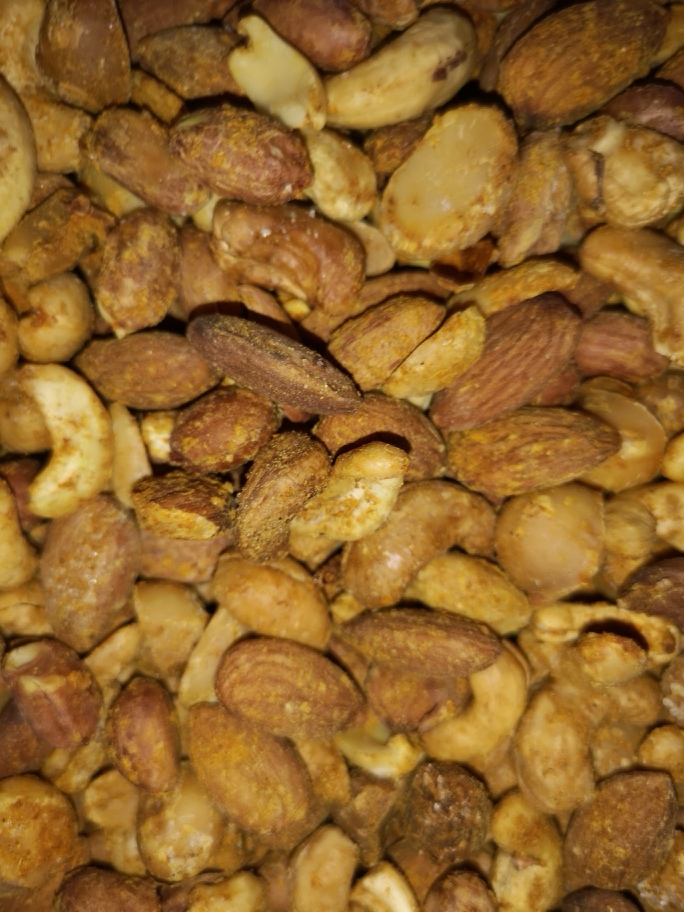
11th October 2019. Dr Chee L Khoo
We all know that weight management is not as simple as a calories in calories out equation. Increasing nut consumption in particular, in theory, can cause weight gain because of nuts’ energy density but it doesn’t always translate to weight gain. In fact, a recent study showed the opposite – increased nut consumption actually is associated with reduced long term weight gain. How does that work?
The cause of weight gain is often oversimplified as a consequence of a surplus in energy intake that can be mitigated by reducing total calorie intake and/or avoiding energy dense foods. That’s the basis of the low fat diet – reducing calories by reducing energy dense oils or fat to lose weight. Nuts are nutrient-dense foods rich in unsaturated fatty acids amongst other things. Their high fat content leads some to perceive nuts as unhealthful and to be avoided by those attempting to manage or lose their body weight.
In a recent study published in the BMJ Nutrition, Prevention and Health, data from three prospective cohorts, the Health Professionals Follow-Up Study (HPFS), the Nurses’ Health Study (NHS), and the NHS II were analysed (2). Approximately 140, 000 subjects in those cohorts who were free of chronic disease at baseline were followed up over 20-24 years. Participants were followed up through mailed biennial validated questionnaires that ascertained medical history, lifestyle factors and other health-related behaviours. Response rate was ~90% per cycle. A validated food frequency questionnaire containing 130 foods was administered to participants in the NHS and HPFS every 4 years.
For nut consumption, participants were asked how often they consumed a serving (28 g or 1 ounce) of nuts and peanuts from the preceding year. Weight and height were assessed by questionnaire at enrolment. They obtained updated self-reported weight on each biennial follow-up questionnaire. Physical activity was assessed using a validated questionnaire that was updated every 2 years with average energy expenditure (metabolic equivalents (MET) hours/week) for specific activities (eg, walking, jogging, bicycling, swimming, racquet sports and gardening).
What did they find?
Across three cohorts, participants had an average weight gain of 0.32 kg each year. From 1986 to 2010, depending on the cohort, consumption of total nuts increased from between 0.07 to 0.47 servings/day in men. Increased total consumption of nuts and intakes of individual types of nuts were associated with less weight gain. Increasing total consumption of nuts per 0.5 servings/day was associated with 0.19 kg less weight gain over 4 years.
In another European cohort study, individuals in the highest quartile of nut intake had less weight gain (−0.07 kg, 95% CI −0.12 to −0.02) and had a lower risk of becoming overweight or obese over 5 years when compared with non-consumers (2). In this study, subjects in the highest quartile of nut intake had less weight gain over 5 years (-0.07 kg; 95% CI -0.12 to -0.02) (P trend = 0.025) and had 5% lower risk of becoming overweight (RR 0.95; 95% CI 0.92-0.98) or obese (RR 0.95; 95% CI 0.90-0.99) (both P trend <0.008).
How does it work?
The mechanisms underlying the observed associations between increasing nut intake and lower risks of weight gain are multipronged. Nuts require considerable oral processing effort. The mastication of chewing may elicit dietary compensation through a reduced rate of ingestion (3) The high fibre content of nuts can delay gastric emptying (3), increase satiety (4,5) suppress hunger and the desire to eat, and promote fullness (6) The fibre in nuts also provides a greater binding of fatty acids in the gut, leading to greater calorie faecal excretion (7).
There is also evidence that the high unsaturated fat composition of nuts elevates fatty acid oxidation and increases thermogenesis (8) and resting energy expenditure, (9) which may also contribute to the mitigation of weight gain.
So, we can reasonably be comfortable that incorporating nuts in the healthy diet of our patients is not likely to contribute to significant weight gain especially in overweight patients. It may actually reduce their weight gain.
References:
- Liu X, Li Y, Guasch-Ferre M, et al. bmjnph Epub ahead of print: [Sept 2019]. doi:10.1136/bmjnph-2019-000034
- Freisling H, Noh H, Slimani N, et al. Nut intake and 5-year changes in body weight and obesity risk in adults: results from the EPICPANACEA study. Eur J Nutr 2018;57:2399–408.
- Slavin JL. Dietary fiber and body weight. Nutrition 2005;21:411–8.
- Tan SY, Mattes RD, Appetitive MRD. Appetitive, dietary and health effects of almonds consumed with meals or as snacks: a randomized, controlled trial. Eur J Clin Nutr 2013;67:1205–14.
- Zaveri S, Drummond S. The effect of including a conventional snack (cereal bar) and a conventional snack (almonds) on hunger, eating frequency, dietary intake and body weight. J Hum Nutr Diet 2009;22:461–8.
- Kirkmeyer SV, Mattes RD. Effects of food attributes on hunger and food intake. Int J Obes 2000;24:1167–75.
- Baer DJ, Rumpler WV, Miles CW, et al. Dietary fiber decreases the metabolizable energy content and nutrient digestibility of mixed diets fed to humans. J Nutr 1997;127:579–86.
- Casas-Agustench P, Lopez-Uriarte P, Bullo M, et al. Acute effects of three high-fat meals with different fat saturations on energy expenditure, substrate oxidation and satiety. Clin Nutr 2009;28:39–45.
- Tapsell L, Batterham M, Tan S-Y, et al. The effect of a calorie controlled diet containing walnuts on substrate oxidation during 8-hours in a room calorimeter. J Am Coll Nutr 2009;28:611–7.
